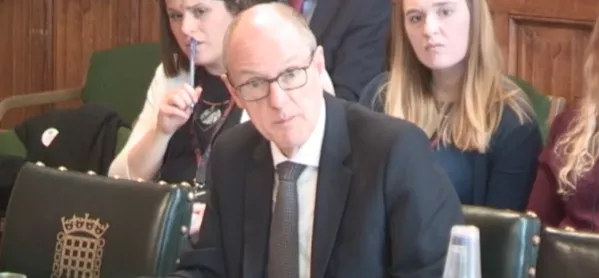Schools standards minister Nick Gibb has told MPs he does not know how many children from deprived backgrounds will benefit from extra funding to help grammar schools expand.
Mr Gibb was questioned by education select committee chairman Robert Halfon this morning about why the department for education had decided to commit £200 million to allow grammar schools to expand. He asked the minister how many children from disadvantaged backgrounds would benefit from the policy.
Mr Gibb initially said he didn’t know, and then agreed with Mr Halfon that it would be “just be a few thousand”.
Mr Halfon suggested the funding would have been better spent on schemes that would have benefited more children from deprived backgrounds.
The committee chair said £200 million could have been used to provide means-tested vouchers for one-to-one tuition for children from deprived backgrounds.
He said this scheme would benefit more than 285,000 young people in contrast to the grammar school expansion, which would only help a few thousand.
The minister responded by saying that the grammar school expansion fund was capital funding, which had to be used to create more school places
Mr Gibb said that grammar schools that wanted to expand “firstly had to show that they there was a need for more secondary places - that they have the demand and, secondly, how are they going to increase their intake of deprived pupils”.
Mr Gibb’s appearance today is the first time a member of government has faced the Commons Education Select Committee since it made a raft of announcements on new school places earlier this month.
These included supporting grammar schools to expand through annexes - which critics claim are new schools - with backing from a £200 million fund.
Opponents have warned that the plan to allow existing grammar schools to expand would be bad for social mobility.
But ministers say they will introduce new rules requiring grammar schools to improve access for disadvantaged children.
A new Selective School Expansion Fund will be allocated £50 million for 2018-19, with details of the remaining £150 million to be announced later.




